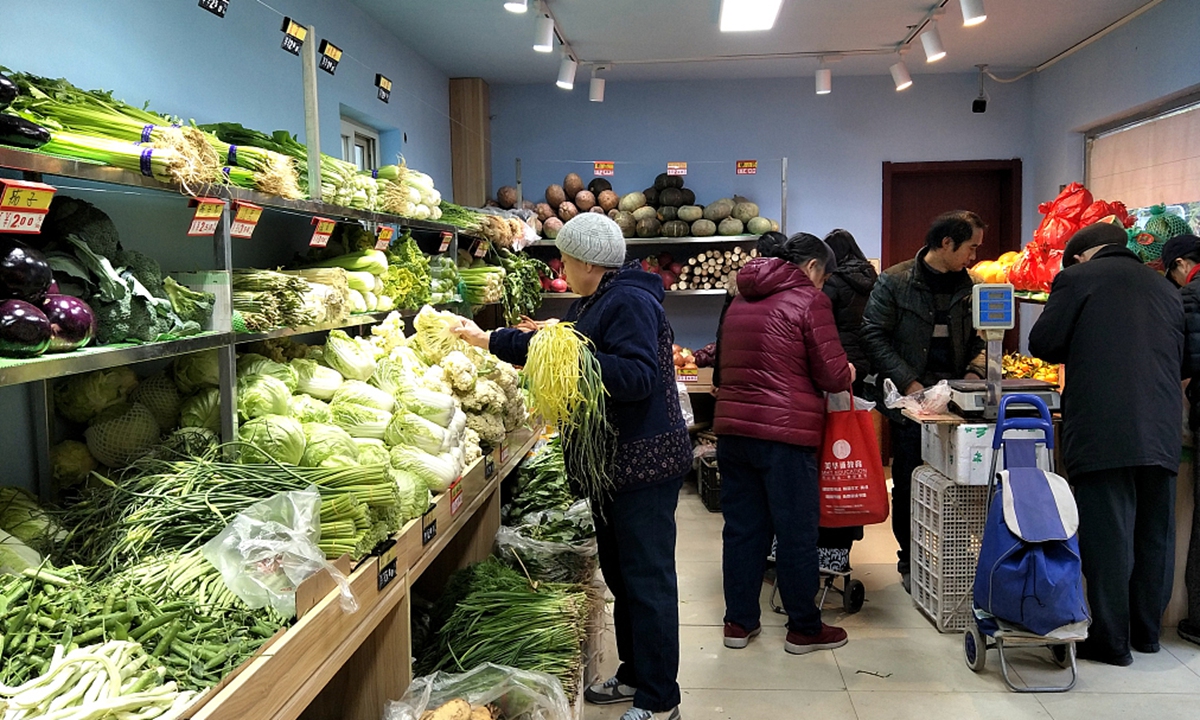China’s market watchdog introduces requirements for community group buying; Alibaba, Tencent join meeting
Source: Global Times Published: 2020/12/22 22:13:29

File Photo: VCG
State Administration for Market Regulation (SAMR) and the Ministry of Commerce told leading e-commerce platforms it is stepping up supervision against unfair competition and regulating market order to maintain fair market climate.
Six large internet firms including Alibaba, Tencent, JD.com, Meituan, Pinduoduo and Didi Chuxing participated in the Tuesday meeting, according to a statement on SAMR’s website.
The meeting acknowledged the importance of e-commerce but price dumping of community group buying has had a negative impact on jobs. It stressed that domestic internet companies could shoulder greater social responsibility and play a larger role in new economic growth momentum, boosting sci-tech innovation and maintaining public interests.
The SAMR asked internet platforms to obey nine rules, including not to dump goods at prices lower than cost, not to reach any kind of monopolistic deals, not to conduct price discrimination based on big data and not to illegally collect users’ information.
It prohibits internet platforms from abusing self-pricing power through measures such as low price dumping, price collusion or price gouging. Meanwhile, it bans dumping at prices lower than costs to squeeze competition or fighting for an exclusive market.
It bans internet companies from taking advantage of technologies to impose unreasonable limitations or fees on businesses operating on the platforms.
A new business model allows a group of residents who live in the same apartment compound to get discounts by purchasing items in bulk. Under this model, e-commerce platforms recruit a lead salesperson assigned to a community, who is responsible for posting product links for residents of their community through a WeChat group. Residents can place orders via these links.
However, in order to fight for users and data traffic, community group buying platforms such as Pinduoduo’s Duoduo Maicai (Pinduoduo Vegetable buying) and start-ups backed by internet giants such as Alibaba and Tencent offered extremely low prices to squeeze competitors. This has caused a growing boycott from suppliers and offline supermarkets, and disrupted market order.
China’s key economic meetings repeatedly stress stepping up anti-monopoly regulations and stopping the “disorderly” expansion of capital.
The SAMR on December 14 slapped administrative penalties on Alibaba Investment Ltd, an affiliate of Alibaba, Tencent-owned China Literature Ltd and SF Express’ Hive-box Technology Company of 500,000 yuan each ($76,450) for failure to notify the concentration of undertakings in advance, which violated the country’s anti-monopoly law.
Global Times
Posted in: INDUSTRIES